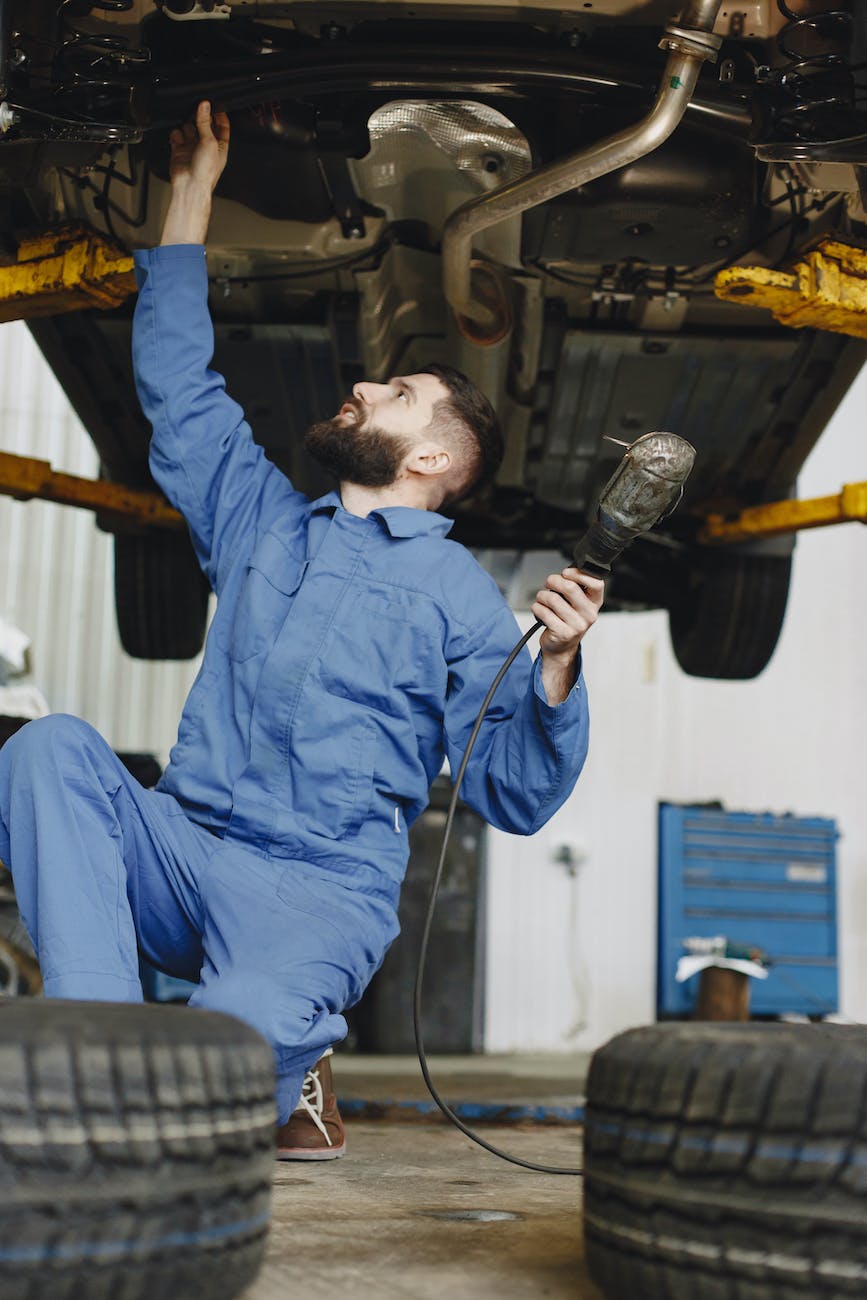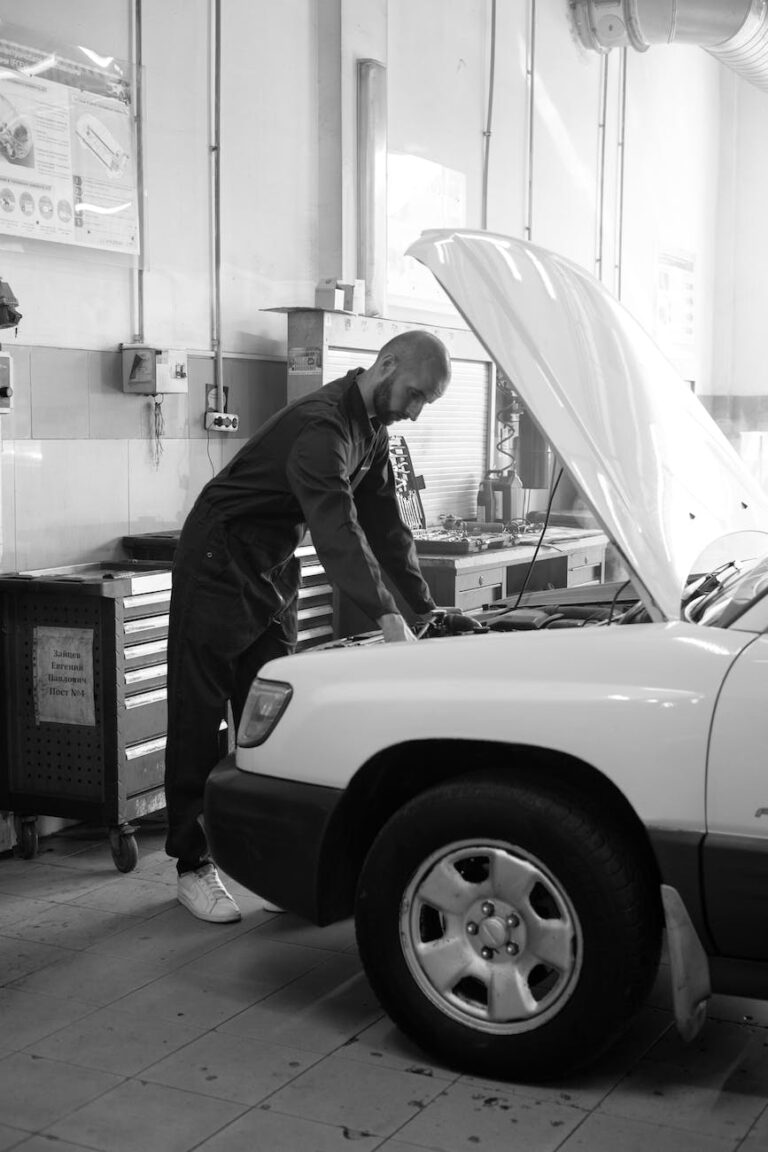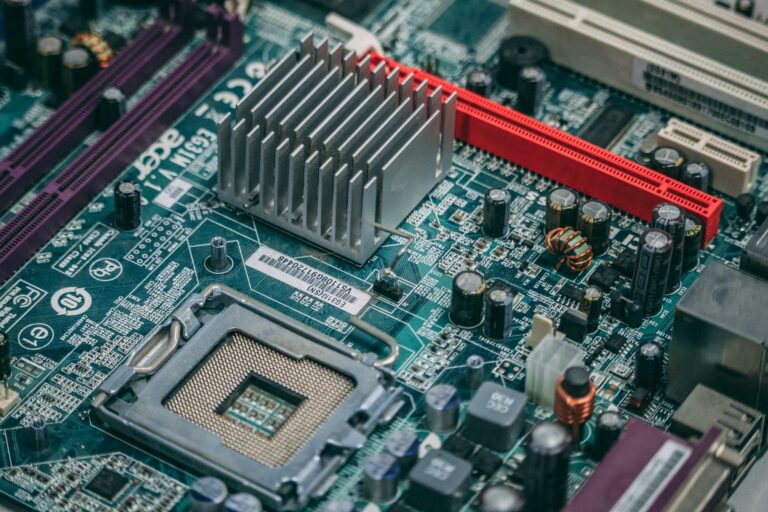Understanding Brake Repair
Ensuring the proper maintenance of your vehicle’s brakes is of utmost importance to ensure your safety on the road. Neglecting brake service can have serious consequences, including brake failure, accidents, and injuries. In this section, we will explore the importance of brake maintenance and the dangers of neglecting brake service.
Importance of Brake Maintenance
Regular brake maintenance is essential to keep your vehicle in optimal condition and ensure your safety while driving. Ignoring brake maintenance or postponing it may seem convenient in the short term, but it can lead to costly and dangerous outcomes in the long run (Source). Here are a few reasons why brake maintenance is crucial:
-
Safety: Properly functioning brakes are critical for your safety and the safety of others on the road. Regular brake inspections and maintenance help identify and address potential issues before they become major problems (Trusted Wrench Auto). According to the National Highway Traffic Safety Administration (NHTSA), brake failure is the most common cause of car accidents, accounting for about 22% of all accidents (Trusted Wrench Auto). Regular brake maintenance can help prevent these accidents.
-
Performance: Well-maintained brakes provide optimal performance, allowing you to stop your vehicle safely and efficiently. Neglecting brake maintenance can lead to diminished braking power, increased stopping distances, and reduced control over your vehicle.
-
Longevity: Regular brake maintenance helps extend the lifespan of your braking system components. By replacing worn brake pads and addressing any issues promptly, you can prevent further damage to other components, such as rotors and calipers. This can save you from costly repairs in the future.
-
Fuel Efficiency: Neglected brakes can affect your vehicle’s fuel economy. When your brakes are not functioning properly, they may drag or create unnecessary friction, causing your engine to work harder and consume more fuel (Source). Regular brake maintenance helps ensure that your braking system operates efficiently, contributing to better fuel economy.
Dangers of Neglecting Brake Service
Neglecting brake service can lead to severe consequences, compromising your safety and resulting in costly repairs. Here are some dangers associated with neglecting brake maintenance:
-
Brake Failure: Failing to address brake issues promptly can lead to brake failure, an extremely dangerous situation. Brake failure can occur due to worn-out brake pads, malfunctioning brake lines, or other brake system components. In the event of brake failure, you may lose the ability to slow down or stop your vehicle, putting yourself and others at risk.
-
Accidents and Injuries: Brake failure can significantly increase the risk of accidents, collisions, and injuries. Without properly functioning brakes, you may be unable to react quickly in emergency situations, leading to potential accidents. Regular brake maintenance helps ensure that your brakes are in optimal condition, reducing the risk of accidents and injuries on the road.
-
Costly Repairs: Neglecting brake maintenance can result in more extensive damage to the braking system, requiring costly repairs. For example, if worn-out brake pads are not replaced promptly, they can damage the brake rotors, necessitating their replacement as well. Addressing brake issues early on can help prevent more expensive repairs down the line.
To ensure your safety and the longevity of your vehicle, it is crucial to prioritize regular brake maintenance. By scheduling regular brake inspections, addressing any issues promptly, and following the manufacturer’s recommended maintenance schedule, you can keep your brakes in optimal condition and enjoy a safe driving experience. If you’re in need of brake services, you can find a reliable brake service provider near you at brake service near me.
Signs You Need Brake Repair
To ensure your safety on the road, it’s crucial to be aware of the signs that indicate your brakes may need repair. Ignoring these signs can lead to further damage and compromise the effectiveness of your braking system. Here are three common indicators that it’s time to seek brake repair:
Worn Out Brake Pads
Brake pads play a crucial role in the braking system, providing the necessary friction to slow down or stop your vehicle. Over time, brake pads wear down due to the constant contact with the rotors. As a general guideline, brake pads should be replaced approximately every 50,000 miles (Performance Honda Store).
One of the most common signs that your brake pads are worn out is squealing or screeching noises while braking. This noise is caused by a small metal shim called an indicator, which contacts the rotor when the brake pads become too thin. If you hear these noises, it’s important to have your brake pads inspected and replaced if necessary. For more information, check out our article on brake pads replacement.
Warning Lights and Dashboard Indicators
Modern vehicles are equipped with warning lights and dashboard indicators to alert drivers of potential issues. If you notice a warning light, such as the ABS or brake warning light, illuminated on your dashboard, it could indicate a problem with your braking system. These warning lights should never be ignored, as they may signal a malfunction that requires immediate attention. It is advisable to have your vehicle inspected by a qualified technician to diagnose and address the issue. Learn more about brake warning lights and other brake-related topics in our comprehensive brake services guide.
Vibrations or Pulsations
When you apply the brakes, if you feel vibrations or pulsations in the brake pedal, it could indicate an issue with your braking system. These vibrations are often caused by warped brake rotors. Warping can occur due to excessive heat buildup or prolonged heavy braking. If you experience these vibrations, it’s essential to have your brakes inspected by a professional. They will assess the condition of your rotors and determine if resurfacing or replacement is necessary. For more details, refer to our article on brake rotor replacement.
Understanding and promptly recognizing these signs can help you address brake issues before they escalate into more significant problems. If you notice any of these indicators, it’s crucial to seek the expertise of a qualified brake repair shop, such as those listed in our article on brake repair shop. Remember, regular brake maintenance and timely repairs are key to ensuring your vehicle’s optimal braking performance and your safety on the road.
Factors Affecting Brake Pad Lifespan
The lifespan of brake pads can vary depending on several factors. Understanding these factors can help car owners anticipate when their brake pads might need replacement and take proactive measures. Two key factors that affect brake pad lifespan are the average lifespan of brake pads and driving habits and road conditions.
Average Lifespan of Brake Pads
Brake pads are designed to wear down over time and need to be replaced periodically. The average lifespan of brake pads typically falls within a range of 30,000 to 70,000 miles, although this can vary depending on various factors such as driving habits and road conditions (Trusted Wrench Auto). Ceramic brake pads, for instance, are known to have a longer lifespan and can last up to 70,000 miles (RepairSmith).
It’s important to keep in mind that these numbers serve as general guidelines, and the actual lifespan of brake pads can vary based on factors specific to individual vehicles and driving patterns. Regular brake inspections, as well as paying attention to signs of reduced braking performance or longer stopping distances, can help determine when brake pads need replacement (Performance Honda Store).
Driving Habits and Road Conditions
Driving habits and road conditions play a significant role in determining the lifespan of brake pads. Aggressive driving, such as frequent hard braking and sudden stops, can accelerate brake pad wear. Similarly, regularly driving in stop-and-go traffic or hilly terrains can put additional strain on the brake pads, leading to faster deterioration.
Road conditions also impact brake pad lifespan. Driving in areas with heavy traffic or where roads are frequently congested can result in more frequent braking, causing the brake pads to wear out faster. Additionally, driving on rough or uneven surfaces, such as gravel or pothole-ridden roads, can accelerate brake pad wear.
To extend the lifespan of brake pads, it is advisable to practice smooth and controlled braking techniques. Maintaining a safe following distance and anticipating stops ahead can help reduce the need for sudden and forceful braking, thus putting less strain on the brake pads. It is also important to drive within the speed limit and adjust driving habits to match road conditions.
By understanding the average lifespan of brake pads and the impact of driving habits and road conditions, car owners can be proactive in monitoring their brake pad wear. Regular brake inspections, along with addressing any signs of reduced braking performance or longer stopping distances, can ensure the timely replacement of worn brake pads. This not only helps maintain optimum braking efficiency and safety but also prevents potential damage to other brake system components.
Brake System Components
Understanding the various components of the brake system is essential when it comes to brake repair. The brake system consists of several key parts, including disc brakes, drum brakes, the ABS control module, and the brake power booster.
Disc Brakes
Disc brakes are commonly found on the front wheels of vehicles. They utilize a disc, also known as a rotor, and brake pads to bring the vehicle to a stop. When the brake pedal is pressed, the brake pads are pressed against the rotating disc, generating friction and slowing down the vehicle. This design provides efficient braking performance, as the disc brakes can dissipate heat more effectively than other brake systems. To learn more about disc brakes and their repair, visit our article on brake system components.
Drum Brakes
Drum brakes are typically located on the rear wheels of vehicles. They consist of brake shoes, wheel cylinders, and a brake drum. When the brake pedal is pressed, the wheel cylinders force the brake shoes to expand against the inner surface of the brake drum, creating friction that slows down the vehicle. Drum brakes are known for their durability and reliability. To learn more about drum brakes and their maintenance, visit our article on brake system components.
ABS Control Module
The ABS (Anti-lock Braking System) control module is a crucial component of vehicles equipped with ABS brakes. This module performs diagnostic checks of the ABS system and determines when to send the correct pressure to each wheel to prevent wheel lock-up. By preventing wheel lock-up, the ABS system helps maintain steering control during emergency braking situations. To ensure the proper functioning of the ABS system, it’s important to have the ABS control module periodically inspected and serviced. For more information on brake system maintenance, check out our article on brake maintenance.
Brake Power Booster
The brake power booster, also known as the vacuum booster, enhances the force exerted by the brake pedal on the master cylinder. It reduces the amount of pressure needed for braking, allowing any driver to operate the brakes with ease. The brake power booster utilizes engine vacuum and pressure to amplify the force applied to the brakes. A properly functioning brake power booster is essential for optimal brake performance. If you experience issues with a soft brake pedal or reduced braking power, it may be necessary to have the brake power booster inspected and repaired. To find a reliable brake service provider near you, visit our article on brake repair shop.
By understanding the function and importance of these brake system components, you can better identify and address any issues that may arise. Regular brake maintenance, including inspections and repairs, is crucial for ensuring the safety and reliability of your vehicle’s braking system. Remember to consult a certified technician and use quality brake parts for any brake repair or maintenance needs.
Benefits of Regular Brake Maintenance
Regular maintenance of your vehicle’s brakes is essential for both your safety and the long-term cost savings. Neglecting brake maintenance can have serious consequences, including brake failure, accidents, and injuries. By prioritizing regular brake maintenance, you can experience the following benefits:
Improved Safety
Regular brake maintenance plays a pivotal role in ensuring the safety of your vehicle and its occupants. Ignoring brake issues or postponing necessary repairs can lead to brake failure, compromising your ability to stop effectively and increasing the risk of accidents and injuries (Trusted Wrench Auto). According to the National Highway Traffic Safety Administration (NHTSA), brake failure is the most common cause of car accidents, accounting for about 22% of all accidents (Trusted Wrench Auto).
Regular brake maintenance includes inspections, brake pad replacements, and addressing any warning signs of brake problems, such as squeaking or grinding noises, vibrating or pulsating brake pedal, or a longer stopping distance (Trusted Wrench Auto). By addressing these issues promptly, you can prevent further damage to the brake system, ensuring optimal performance and the ability to stop safely in various driving conditions.
Cost Savings in the Long Run
Investing in regular brake maintenance may seem like an added expense, but it can save you significant costs in the long run. Neglecting brake maintenance can lead to more severe damage to the brake system, such as rotor damage, which can be more expensive to repair (RepairSmith). By addressing brake issues early on and replacing brake pads as needed, you can prevent further damage to the braking system and potentially avoid costly repairs.
Furthermore, regular maintenance can help identify and address potential brake issues before they become major problems (Trusted Wrench Auto). This proactive approach can save you from unexpected breakdowns and the associated expenses. Additionally, well-maintained brakes can contribute to better fuel economy, as poorly serviced vehicles may experience decreased fuel efficiency (Source).
By investing in regular brake maintenance, you not only prioritize your safety but also save money in the long run. It’s essential to have your brakes inspected regularly, address any warning signs promptly, and replace brake pads when necessary. Consulting a professional brake service provider, such as a certified technician, ensures that your brake system is in optimal condition and provides peace of mind while driving. For more information on brake services and finding the right brake service provider near you, visit our article on brake services.
Choosing the Right Brake Service Provider
When it comes to brake repair, selecting the right service provider is crucial for ensuring the safety and reliability of your vehicle’s braking system. Here are two key factors to consider when choosing a brake service provider: certified technicians and quality brake parts.
Certified Technicians
To guarantee proper installation and maintenance of your brakes, it is essential to choose a brake service provider with certified technicians. These technicians have undergone specialized training and certification programs to develop the necessary skills and knowledge in brake repair.
Certified technicians are equipped with the expertise to diagnose brake issues accurately and efficiently. They are familiar with the intricacies of various brake systems and can perform repairs and replacements with precision. Their expertise ensures that your brakes are in good hands, providing peace of mind and confidence in the quality of workmanship.
When researching brake service providers, look for certifications such as those from the National Institute for Automotive Service Excellence (ASE). These certifications indicate that the technicians have met stringent industry standards and are up-to-date with the latest advancements in brake technology.
Quality Brake Parts
The use of high-quality brake parts is integral to reliable and safe braking performance. When selecting a brake service provider, it is important to consider the quality of the brake parts they use.
Using inferior or substandard brake parts can compromise the effectiveness and durability of your braking system. Quality brake pads, rotors, calipers, and other components are designed to withstand the demands of braking, providing optimal performance and longevity.
A reputable brake service provider will prioritize the use of quality brake parts from reputable manufacturers. These parts meet rigorous industry standards and are often backed by warranties, ensuring their reliability and durability.
By choosing a brake service provider that utilizes certified technicians and high-quality brake parts, you can have confidence in the expertise of the professionals working on your vehicle and the performance of your braking system. For more information on brake services and finding a trusted provider near you, visit our article on brake service near me.
Remember, regular brake maintenance is crucial for the safety and longevity of your vehicle’s braking system. Don’t overlook the importance of choosing a reputable brake service provider with certified technicians and a commitment to quality brake parts.
Choosing the Right Brake Service Provider
When it comes to brake repair, it’s essential to find a reliable and experienced brake service provider. The right provider will ensure that your car’s braking system is in optimal condition, providing you with peace of mind and road safety. Here are some factors to consider when choosing a brake service provider.
Certified Technicians
One of the most important factors to consider is the expertise of the technicians performing the brake repair. Look for a service provider that employs certified brake technicians who have undergone specialized training and possess the necessary skills to diagnose and repair brake issues. Certified technicians have the knowledge and experience to handle various brake systems, ensuring that your car receives the care it deserves.
By choosing a service provider with certified technicians, you can have confidence in the quality of the brake repair performed. These professionals stay up-to-date with the latest advancements in brake technology and follow industry best practices, ensuring that your brake system is repaired correctly and efficiently.
Quality Brake Parts
Another key consideration is the quality of the brake parts used by the service provider. It’s important to choose a provider that uses high-quality, OEM (Original Equipment Manufacturer) or equivalent brake parts. These parts are specifically designed for your vehicle’s make and model, ensuring proper fitment and performance.
Using inferior or low-quality brake parts can compromise the effectiveness and safety of your braking system. High-quality brake parts provide reliable and consistent stopping power, reducing the risk of brake failure and ensuring optimal performance.
When selecting a brake service provider, inquire about the types of brake parts they use. A reputable provider will be transparent about the quality of the parts they install and may even offer warranties on their workmanship and the parts used.
By choosing a brake service provider with certified technicians and a commitment to using quality brake parts, you can be confident that your car’s braking system is in good hands. Regular brake maintenance and prompt brake repair when needed are essential for your safety and the longevity of your vehicle’s braking system.
For more information on brake services, including brake replacement, brake fluid flush, brake inspection, and more, consult our comprehensive guide on brake services.
Remember to prioritize your safety and that of others on the road by addressing any brake issues promptly and entrusting your brake repair to a reputable service provider.







